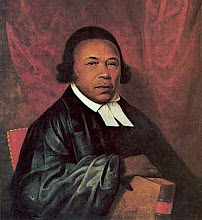
Advent
The word Advent comes from the Latin Adventus, which means "Coming." It is the first season of the Church year. Advent begins four Sundays before Christmas and ends on Christmas day. The color of Advent is traditionally purple, marking the preparational aspects of the season. In Advent we prepare for our Lord's coming in three ways: at Christmas; for his coming into our hearts; and for his coming again at the end of time.
Advent Wreath
A wreath with four or five candles, used in most Episcopal churches and in some homes during the season of Advent. Four candles are placed in a circle, and a fifth may be placed in the center. One candle is lit on the first Sunday in Advent, two on the second Sunday, three on the third and four on the fourth Sunday in Advent. On Christmas day, the fifth candle is lighted.
Source: The Church of the Holy Cross, Sullivan's Island, Daniel Island and I'On Community near Charleston S.C.
Healthy Living
Heart Attack On a Platter
Over the past decade or two we've learned a lot more about the physiological events that take place after eating a meal packed with carbohydrates, fat, and salt. After a large meal (a Thanksgiving feast can easily exceed 4,0000 calories), cardiac output of blood is increased and diverted to the intestinal circulation to aid digestion, which can take as long as 6 hour, leaving other organs, including the heart and brain, relatively deprived. An increase in insulin, triggered by the carbohydrate content of the meal, can compound the situation by preventing normal relaxation of the coronary arteries. The high fat content of a typical holiday feast can precipitate a gallbladder attack in people who have gallstones. The high salt content might trigger acute heart failure in someone with a history of that condition.
Some Suggestions
1) Don't arrive famished. Have a snack an hour or two before.
2) Stay away from the finger food at the d'oeuvres table.
3) Eat the salad first.
4) Use a salad plate instead of a dinner plate.
5) Taste everything to your liking but take small portions, and resist seconds.
6) Eat slowly, and participate in conversation.
7) Skip the dessert, or at least go easy on it. Fruit is preferable.
8) Limit alcohol intake to one glass of wine, and drink at least one full glass of water.
Source: Marvin M. Lipman, MD "Heart Attack on a Platter." Consumer Reports On Health (November 2010): page 11.
Clergy
The Rev. Charles Davidson
Vestry Members
Carol Anderson, Cyrus Aimey (Junior Warden), Walter Benjamin (Senior Warden), Terry Brown (Treasurer), Marie Brown-Harvey (Secretary), Nora Brown, Arlette Hurdle, shannon Holder, Joyce Asiedu, Bates Lyons, Joe Noel, Peter Marsele, Clarence Tuning, Lloyd Wimbish, Herbert Bowen ( Hon)
Music
Rochelle Holder - Youth Choir
Nathaniel Baker - Music Director/Organist
Rector Emeritus
Canon Cyril Burke
Email
monicahartford@gmail.com

No comments:
Post a Comment